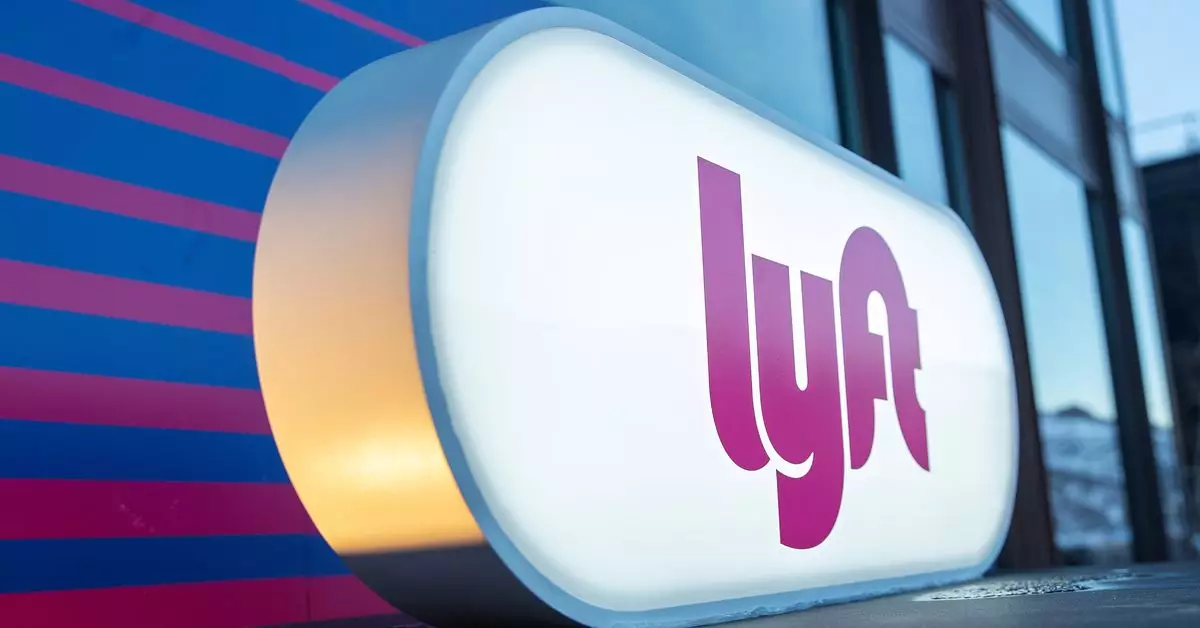In a significant move reflecting ongoing scrutiny of the gig economy, the Federal Trade Commission (FTC) announced that Lyft will pay a hefty sum of $2.1 million as part of a settlement addressing misleading advertising practices surrounding driver earnings. Since its inception, the gig economy has thrived on flexible work opportunities, which, while appealing to many, have often been coupled with deceptive marketing strategies designed to lure drivers in. The FTC’s intervention is a clear indication that regulatory bodies are taking serious steps to protect workers from potentially misleading claims that can influence their earnings.
The backdrop of this settlement comes amid growing concerns regarding transparency in compensation claims made by rideshare and delivery companies. In recent years, the FTC has ramped up its investigations into companies like Lyft and Uber, citing practices that deceive workers about their potential pay. This recent settlement marks a notable step towards holding such companies accountable for their advertising strategies.
In its advertisements, Lyft is accused of promoting potentially inflated earnings figures that provided an unrealistic picture of what drivers could actually earn. For instance, the company advertised that drivers could earn “up to $33” per hour in Atlanta, a figure that was not derived from averages or typical earnings but rather from the highest earners—namely, the top 20% of drivers. Moreover, these figures often included tips, which further exaggerated the actual income drivers could expect. According to the FTC, these misleading figures could have inflated drivers’ expectations by as much as 30%, creating a disparity between what was promised and what was commonly earned.
This practice is particularly concerning because it does not merely misrepresent the financial realities of the job; it also preys on individuals seeking meaningful, lucrative employment opportunities. With many drivers depending on rideshare earnings to support themselves, misleading claims can severely impact their financial well-being and trust in gig platforms.
The settlement dictates that Lyft must now alter its advertising strategies to provide more accurate representations of potential driver pay. In a bid to increase transparency, future pay claims must be based on average earnings accrued by drivers, without including tips or bonuses as part of the equation. FTC Chair Lina M. Khan emphasized the legal implications of deceptive advertising and stated, “It is illegal to lure workers with misleading claims about how much they will earn on the job.” This stern warning reinforces the notion that regulatory bodies are serious about protecting American workers from exploitation.
Additionally, the FTC highlighted Lyft’s promises of earnings guarantees, where drivers were led to believe they would receive fixed bonuses for completing a certain number of rides. Unfortunately, these guarantees were often conditional and failed to clarify to drivers that they were more akin to minimum pay thresholds—just another layer of deception that obscured genuine earning potential.
As Lyft responds to the FTC settlement by pledging to adapt its practices and enhance transparency in its earnings claims, the effects of this ruling may reverberate throughout the broader gig economy. Companies operating in this space must now re-evaluate how they market job opportunities and communicate pay structures to avoid similar legal repercussions.
State-level regulations also come into play, as seen in Massachusetts and New York City, where new laws mandate minimum wages for rideshare drivers. Such legislation not only contributes to better labor standards but also signifies a transformation in the nature of gig work. These changes culminate in a stronger framework for gig workers that prioritizes fair compensation and transparent communication.
The $2.1 million settlement with the FTC should be seen as more than a financial penalty; it represents a pivotal moment in the ongoing struggle for fair labor practices within the gig economy. Companies like Lyft are now under pressure to re-engineer their advertising strategies, ensuring that they reflect the true earning potential of their drivers while fostering a more equitable working environment. As scrutiny over the gig economy increases, it remains crucial for workers to advocate for their rights, while regulatory bodies enforce compliance with ethical advertising practices.

